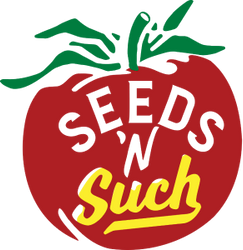Why We All Need To Support Sustainable Agriculture: “It’s A Matter Of People”
“Sustainable agriculture is not just a passing fad,” insists author John Ikerd in his book Small Farms Are Real Farms: Sustaining People Through Agriculture. “It’s not going to go away,” he continues, “Sustaining agriculture is ultimately about sustaining people—not just agriculture. People are becoming increasingly concerned about today’s agriculture—about its ability to meet the needs of people today and still leave opportunities for people in the future. People are becoming increasingly concerned about the healthfulness of our food supplies as we increase our reliability on an impersonal, global food system. People are becoming increasingly concerned about the natural environment as agriculture moves into the final stages of corporate industrialization.”
(John Ikerd has quite an astonishing resume of life-long experience: He was raised on a small dairy farm in southwest Missouri and received his B.S., M.S. and Ph.D. degrees in agricultural economics from the University of Missouri. He worked in private industry for a time and spent 30 years in various professional positions at North Carolina State University, Oklahoma State University, University of Georgia and University of Missouri, before retiring in early 2000. Since retiring, and now 80 years old, he spends most of his time writing and speaking on issues related to the sustainability of agriculture.)
“People are beginning to realize that because corporations are not people, they have no concerns for farmers, for rural residents, or even for consumers, in any sense other than as markets for their products,” states Ikerd, “Corporations have no heart, they have no soul; their only concern are for profit and growth. People are becoming increasingly concerned about an agriculture that has no commitment to the well-being of people. Sustainable agriculture became a public issue because of the concerns of people about people.”
Noting their fierce resistance to U.S. Department of Agriculture and Land Grant Universities attempts to establish viable sustainable programs beginning in the 1980s, Ikerd says, “The agricultural establishment has not, and will not, embrace the social dimension of agricultural sustainability. A sustainable agriculture must sustain people—not just people as consumers, but people as farmers, rural residents and members of a civil society. Ultimately, a society will not sustain an agricultural system that will not sustain people—people as producers and citizens as well as consumers.
“Sustainable agriculture will never be funded, or even tolerated by agribusiness, because it is fundamentally about reducing reliance on off-farm inputs, protecting the natural environment and empowering people to free themselves from corporate domination,” Ikerd continues, “Sustainable agriculture will never be funded, or even tolerated, by large commodity groups, because it promotes diversification rather than specialization. Sustainable agriculture is about people rather than production. If sustainable agriculture research and education is to be funded, it will have to be funded publicly, by the people.
“Sustainable agriculture promotes smaller, more-diversified family farms because of its focus on people. It seeks greater economic rewards to farmers, rather than more profits for input suppliers. It seeks way to farm in harmony with nature, rather than to conquer nature. And it seeks to support farming as being a quality way of life, as well as a way to make a living. If agriculture is to be sustainable, we must have enough farmers to sustain the productivity and ecological health of the land.
“Thus, sustainability will require more, rather than fewer, farmers—more who understand their particular parcel of land, who know how to take care of it, who are motivated to care for it, and who have the time and money to care for it well, more farmers who ‘love the land.’ And each farmer can ‘love’ only so much land.”
Ikerd concludes, “Sustainable agriculture promotes greater concern among people—people making conscious, purposeful decisions for the common good rather than relying on the impersonal forces of the marketplace. The invisible hand of capitalist economics that is supposed to transform individual greed into the common good has been mangled in the machinery of corporate consolidation. The markets will not ensure that the hungry will be fed. The markets will not ensure that people willing to work will have an opportunity to work. The markets will not ensure that future generations will have adequate resources to meet their needs for food, clothing and shelter. The only way to ensure that the needs of the present and future are met is to make conscious, purposeful decisions to care for the natural environment and to care for other people.”
Ikerd defines his “mandate of sustainable agriculture: to care about people of this generation and people of all generations to come. It’s a mandate that too few are yet willing to accept, but a mandate that ultimately cannot be denied. Sustainable agriculture must be about sustaining people through agriculture, not just sustaining agriculture.”
